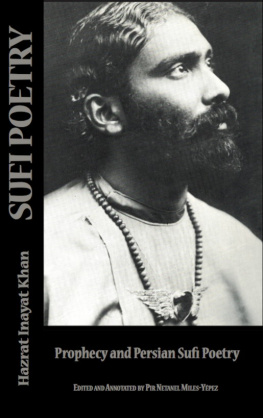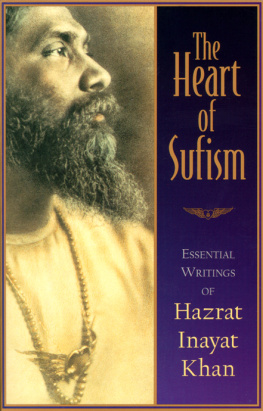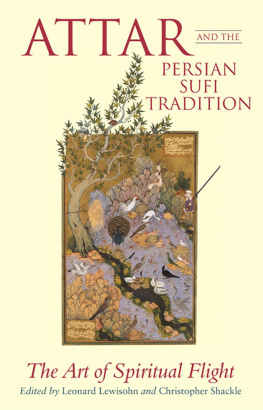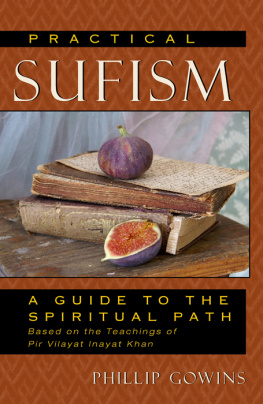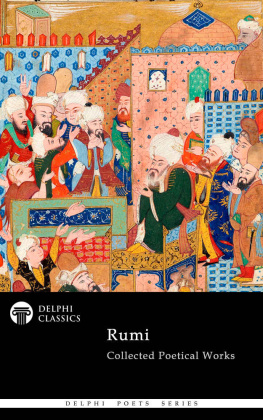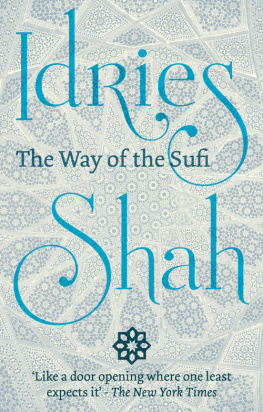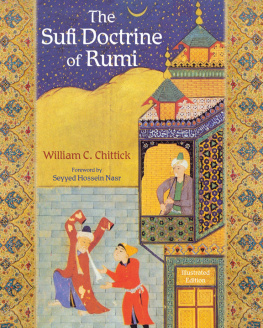Sufi Poetry
Prophecy and Persian SufiPoetry
Gender InclusiveEdition
Adapted into ModernEnglish
Hazrat
Pir-o-Murshid
Inayat Khan
Edited and Annotatedby
Pir NetanelMiles-Ypez
Published by Albion-Andalus Books at Smashwords
Boulder, Colorado 2015
The old shall berenewed,
and the new shall be made holy.
Copyright 2015 Netanel Miles-Ypez
All rights reserved.
This ebook may not bere-sold or given away. No part of thisbook may be reproduced or transmitted in any form or by any means,electronic or mechanical, including photocopy, recording, or anyinformation storage or retrieval system, except for brief passagesin connection with a critical review, without permission in writingfrom the publisher:
Albion-Andalus, Inc.
P. O. Box 19852
Boulder, CO 80308
www.albionandalus.com
Cover design by DarylMcCool
Design and layout byAlbion-Andalus Books
Rose-Heart and Wingsillustration
2008 NetanelMiles-Ypez
ISBN: 9781310177286
Contents
Editors Preface
Hazrat Inayat Khan was himself a poet and musician, uniquelyqualified to talk about Sufi poetry from both an artistic andspiritual perspective. This slim book, simply entitled, Sufi Poetry , is acollection of talks by the master on the Persian Sufi poets and themystical connection between poetry and prophecy. Although he alsodiscusses poetry and some of the same themes in anothercollection, Art: Yesterday, Today, andTomorrow , the talks in Sufi Poetry deal far morespecifically with symbolism in Persian Sufi poetry and also give usa more detailed presentation of the works of the most famousPersian Sufi poets: Farid ad-Din Attar, Jalal ad-Din Rumi, Muslihad-Din Sadi, and Shams ad-Din Muhammad Hafiz.
This edition of Sufi Poetry has beencarefully re-edited and adapted from the original publication(found in the influential Sufi Message Series) for clarity inmodern English. It has also been made gender inclusive to preventdistortion of the original Message of Hazrat Inayat Khan. Althoughit was the convention in his own day to use the masculine personalpronoun in an inclusive sense, such use of patriarchal language isno longer considered representative of our current values and issometimes off-putting to those who might otherwise be inspired bythe beautiful and original teachings of the master. Nevertheless,it should be remembered that an adaptation like this one isnecessarily an interpretation and liable to error. For this, I takefull responsibility. Please know that I have approached thematerial with the utmost respect and have only made changes in thehope that the updated language and gender inclusivity would help tospread the Message of God far and wide.
Pir Netanel Muin ad-Din,Boulder, Colorado, dedicated to my Sabiha, January2 nd , 2015, the birthdayof Noor Inayat- Khan, and the day on which we read...
All names and forms
are garments and covers
under which the one life is hidden.
Sufi Poetry
Prophecy and Persian SufiPoetry
The Poet and theProphet
There is asaying , a poet is a prophet. This is asaying of great significance and hidden meaning. There is no doubtthat although poetry is not necessarily prophecy, prophecy is bornin poetry. Poetry is a body adopted by the spirit of prophecy.Wagner says that noise is not necessarily music; the same can besaid of poetry. A verse written in rhyme and meter is notnecessarily true poetry. Poetry is an art, a music expressed in thebeauty and harmony of words. Of course, much of the poetry onereads is written for amusement or recreation; but real poetry comesfrom the dancing of the soul. No one can make the soul dance unlessthe soul itself is inclined to dance. Likewise, no soul can dancewhich is not alive.
In the Bible, we aretaught that no one will enter the kingdom of God whose soul hasnot been born again. Being born again refers to being alive. A cheerfuldisposition, or an external inclination to merriment, are not theonly signs of a living soul. External joy and amusement may simplycome through the external being of a person. However, even in thisouter joy and happiness, there is sometimes a glimpse of inner joyand happiness, which is a sign of the soul having been bornagain.
What brings the soul tolife? It is brought to life when it touches its own depths. Whenthe soul comes up against the iron wall of this life of falsehood,and instead of reaching outward, turns within, it encounters itselfand begins to come to life. Our nature is such that when we meetwith obstacles, we struggle with them. For the sensitive person,the person with a sympathetic and tender heart, these obstacles andblows from the outer world make an impact within; and instead ofmaking them want to hit back externally, it only makes them want togo deeper within; for the soul is awakened by the blows of life.This person might have appeared to be living before, but inreality, they were as if dead. But once the soul is awakened, itbegins to expresses itself through music, art, poetry, or deeds.This is how the poet is born.
There are two signs whichreveal the poet: one is imagination; the other is feeling. Both areessential on the spiritual path. A person who lacks thesequalities, however learned and good, can never arrive at asatisfactory place on the spiritual path. The scriptures of allpeoples and ageswhether those of the Hindus, the Parsis, or theChildren of Israel ( beniIsrael )were all given in poetry or poeticprose. No spiritual person, however great or spiritually advanced,has ever been able to give a scripture to the world unless blessedwith the gift of poetry. One wonders if this is still possibletoday, when more refined sentiments are little appreciated andpeople wish everything to be expressed plainly, cut-and-dry, asthe saying goes. People have become accustomed to having everythingexplained in almost scientific terms. The facts concerning thenames and forms of this world may be explained scientifically, incolorless words; but when one wishes to interpret the sensationsaroused by actually looking at life, it cannot be done except inthe way the prophets did it in poetry. No one has ever explained,nor can anyone ever explain the truth in words, least of all inordinary language. Most language exists for the convenience ofeveryday affairs. The deepest sentiments cannot be explained inthis language. The message that the prophets have given to theworld at different times is an interpretation of life as they havereceived it.
Inspiration begins inpoetry and culminates in prophecy. The poet is a soul who has, asit were, risen from the grave and begun to move gracefully. Whenthat soul begins to dance, moving beautifully in all directionsbetween heaven and earth, expressing all the beauty it sees, thatis prophecy. When developed, the poet reads the mind of theuniverse; although often, the poet does not know the actual meaningof what has been said. Often, it is only after many years that onerealizes the real meaning. Behind all our activities, the divinespirit is hidden, and often manifests without our realizing it isdivine.
In the East, the prophetis called paighambar , which means, the messenger, someone who carries a word tosomeone else. In reality, everyone in this world is the vehicle ofa hidden impulse, and usually without knowing it. This is true ofliving beings as well as objects. Every object has its purpose; andby fulfilling its purpose, it fulfills the plan of nature.Therefore, whatever a persons activity might bewhether business,science, music, art, or poetrythey are in some way a vehicle.There are vehicles of living beings, and vehicles of those who havepassed to the other side; vehicles who represent their country, andvehicles who represent their people. Everyone is acting in theirown way as a vehicle.
When the prophet or poetdives deeply within, they touch that perfection which is the sourceand goal of all beings. As an electric wire connected with abattery receives the force or energy of the battery, so the poetwho has touched the inmost depths of their being has touched thedivine perfection. From there, they derive that wisdom, thatbeauty, and that power which belong to the perfect Self ofGod.
Next page
